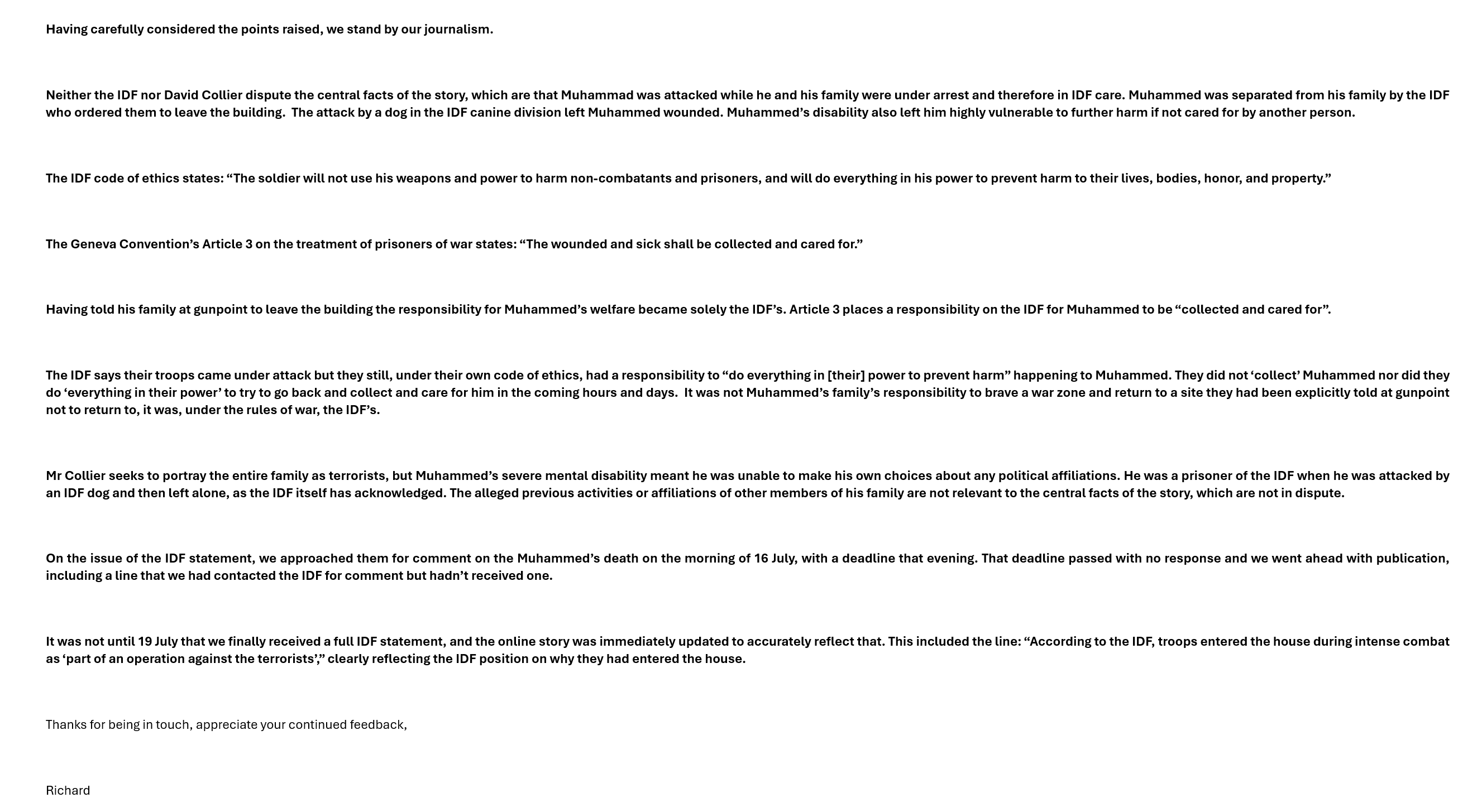Image

Text
Having carefully considered the points raised, we stand by our journalism.
Neither the IDF nor David Collier dispute the central facts of the story, which are that Muhammad was attacked while he and his family were under arrest and therefore in IDF care. Muhammed was separated from his family by the IDF who ordered them to leave the building. The attack by a dog in the IDF canine division left Muhammed wounded. Muhammed’s disability also left him highly vulnerable to further harm if not cared for by another person.
The IDF code of ethics states: “The soldier will not use his weapons and power to harm non-combatants and prisoners, and will do everything in his power to prevent harm to their lives, bodies, honor, and property.”
The Geneva Convention’s Article 3 on the treatment of prisoners of war states: “The wounded and sick shall be collected and cared for.”
Having told his family at gunpoint to leave the building the responsibility for Muhammed’s welfare became solely the IDF’s. Article 3 places a responsibility on the IDF for Muhammed to be “collected and cared for”.
The IDF says their troops came under attack but they still, under their own code of ethics, had a responsibility to “do everything in [their] power to prevent harm” happening to Muhammed. They did not ‘collect’ Muhammed nor did they do ‘everything in their power’ to try to go back and collect and care for him in the coming hours and days. It was not Muhammed’s family’s responsibility to brave a war zone and return to a site they had been explicitly told at gunpoint not to return to, it was, under the rules of war, the IDF’s.
Mr Collier seeks to portray the entire family as terrorists, but Muhammed’s severe mental disability meant he was unable to make his own choices about any political affiliations. He was a prisoner of the IDF when he was attacked by an IDF dog and then left alone, as the IDF itself has acknowledged. The alleged previous activities or affiliations of other members of his family are not relevant to the central facts of the story, which are not in dispute.
On the issue of the IDF statement, we approached them for comment on the Muhammed’s death on the morning of 16 July, with a deadline that evening. That deadline passed with no response and we went ahead with publication, including a line that we had contacted the IDF for comment but hadn’t received one.
It was not until 19 July that we finally received a full IDF statement, and the online story was immediately updated to accurately reflect that. This included the line: “According to the IDF, troops entered the house during intense combat as ‘part of an operation against the terrorists’,” clearly reflecting the IDF position on why they had entered the house.
Thanks for being in touch, appreciate your continued feedback,
Richard
